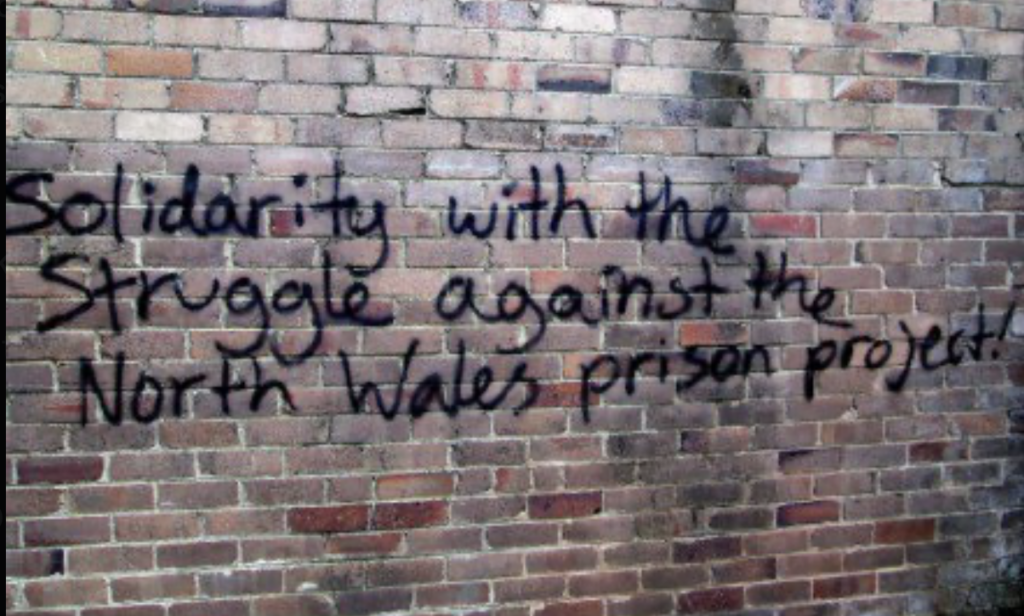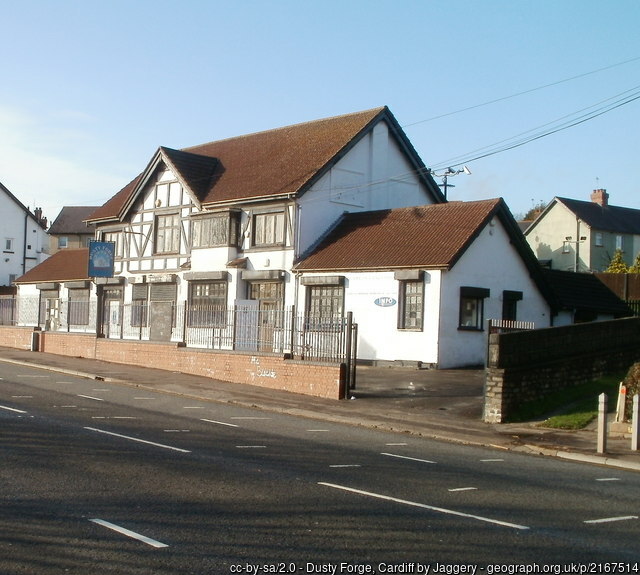John Osmond says the decision on electrification of the Great Western rail line to Swansea will signal whether we still register on Westminster’s radar
The Conservative and Liberal Democrat Coalition in London face a simple challenge as we approach next May’s Assembly elections in Wales. Has it given them a moment’s thought? I raise this question in the knowledge that it is poised to announce its response to the Calman Commission into Scottish finances within the next week or so, with a commitment to put their changes into effect ahead of the Scottish Parliament elections being held at the same time as ours next May. Against huge Treasury misgivings the Scottish Parliament is about to be given a major boost to its fiscal powers.
So why the urgency in relation to Scotland, and why is there no sign that they give a fig about Wales? The answer is simple. The chief secretary to the Treasury is Danny Alexander, Scottish Liberal MP for Inverness, Nairn, Badenoch and Strathspey, an area that is highly vulnerable to the SNP in the Scottish Parliament elections. His seat has been divided into two for the Scottish Parliament elections, creating the new seats of Inverness and Nairn, and Skye, Lochaber and Badenoch. Both will be highly marginal with the former leaning to the SNP and the latter to the Liberal Democrats with many predicting that the SNP will take both. As in Wales the Liberal Democrats languish at the bottom of the polls and if anything their propping up the Tories in London is even more unpopular.
Hence the urgency with which Danny Alexander is addressing the financial aspirations of the Scottish Parliament. The Liberal Democrats desperately need a good story to tell in the run-up to the Scottish elections. And the last thing they’re looking at is any change to the Barnett formula along the lines recommended in the Welsh Government commissioned Holtham report. Any move towards a needs based formula to meet Welsh underfunding, as recommended there, would result in the Scots taking a major hit. When Welsh Liberal Democrat leader Kirsty Williams attempted to persuade Danny Alexander otherwise, at a recent meeting, she was given short shrift – which is the kindest way I can think of putting it.
So what can the London Coalition government come up with for Wales? There are not many shots left in its locker. Wales did badly out of the Comprehensive Spending Review, certainly when compared with Scotland and Northern Ireland. S4C took a major hit, while the Severn Barrage was sent packing as was the proposed St Athan Defence Academy. Meanwhile a quarter of the Welsh Parliamentary constituencies are being dispensed with, in the name of giving all constituencies across the UK equal electorates of around 75,000. This will mean a fall from 650 to 600 constituencies – ten of them culled from Wales.
In yesterday’s Western Mail the Secretary of State for Wales Cheryl Gillan made a desperate attempt to put a positive spin on all of this, blaming the Labour legacy (again) and pleading with us to allay judgement until the next Westminster election in four-and-a-half years time. However, the Assembly election is less than six months away.
What can the Coalition government do between now and then to demonstrate that, as with that famous European Commission map showing assisted areas, Wales hasn’t completely fallen off the edge? The acid test surely has to be the decision on electrification of the Great Western line between London and Swansea, expected in about ten days time.
There is speculation that the Department of Transport is considering electrification as far as Bristol, with an option for the Welsh Government to stump up the extra £200 million it would take to extend it to Swansea. If that’s what is in the offing the outlook will be bleak for the Lib Dems next May while the Tories would kiss goodbye to making any gains and would probably lose seats like Cardiff North.
For much more hangs on electrification than upgrading the service and shaving 20 minutes off the journey time between London and Cardiff. At stake is the future of the whole south-east Wales rail network. What we need is the transformation of this into an electrified light-rail system similar to the ones that are so successful in continental Europe, for example in Bordeaux and around Stuttgart.
Plaid Cymru announced this week that is was thinking of committing to taking over the franchise of Welsh railway system when it comes up for renewal in 2018. In the last few years Arriva Trains have made £10m a year profit out of the franchise. If it was run by a Government-owned, arms-length not-for-profit company like Glas Cymru, which runs Welsh Water, this money could be ploughed back.
The template obviously is Welsh Water, which raised finances at very favourable rates on the bond market, with security being the long-term stability of the business. Backed by the Welsh Government, with a guaranteed income stream from the profit from the rail fares, the same could apply to raising long-term finance to invest in the Welsh rail network, and especially the south-east Wales Valley lines linking into Cardiff and Newport.
There is a potential critical mass of users here, as well, further enhancing the returns from the service – so long as the Welsh Government simultaneously uses its powers to restrict car traffic access to the city centres, with park and ride schemes in all the main Valley towns.
But all of this is contingent on electrification of the main line from Paddington to Swansea, without which electrification cannot be extended into the Valleys. So a lot more than a few Liberal Democrat or Conservative seats in next May’s elections is hanging on whether Cheryl Gillan has any clout with the Department of Transport – and more’s the point, the Treasury – in Whitehall.






The discussion here about rail electrification, let alone high speed lines, is so narrowly focussed. It’s only between a place called ‘South Wales’ (where’s that?) and London. If we had proper national ambition, our minimum aim would be the electrification of both the north and south coast lines, from the English border to Holyhead and Milford Haven. Nothing less, for starters.
I write this having recently experienced a 125 trip from London to Cardiff. A freezing carriage all the way (the connecting door wouldn’t close). No water in the wash handbasin. A really noisy bogie. The coach jumping up and down on many sections of track. What an advert for 21st Century Wales!
Our whole paradigm – like much in Cardiff Bay – is so Anglo-centric. Yet we are linked to another country in the west (for new readers, it’s called Ireland). Our need is for better, more direct, rail links with the mainland, not just London. We share that not only with Ireland but Scotland and North England. Has that political case ever been made here? We can’t expect it from Network Rail.
One sign of progressive thinking, literally, would be to see our north and south coast highways actually branded with their other names, E22 and E30 respectively. The possibility of Holyhead to Hamburg and Cork to Moscow would certainly help smash the insular mind-set which keeps us backward and relegates discussion of rail electrification to how far our peninsula is from an English city on the Thames.
The theory is that they only intend to pay up to Bristol and will ask WAG to contribute towards the Welsh section. With a 41% cuts in the WAG capital budget over the next 4 years, that is simply impossible for WAG.
Having said that, my gut feeling is that this is a bluff and they will fund into Wales-perhaps even to Swansea. However, there may be a sting in the tail in terms of timing. A rejection of the Welsh section would wipe huge percentages off the Lib and Tory votes and I can’t believe that they would risk it so think that the monies will be committed. God help them in May if they don’t.
The majority of costs for GWML electrification are not due until after 2015 – so in the next parliament when the public finances will be in better shape. If by then, as seems likely, powers and funding over rail have been devolved to WAG from the DfT, then it would be possible to undertake perhaps a five year programme of electrification of the GWML from Bristol to Swansea and the valley lines for perhaps ~£600M? Given the current (pre CSR) WAG budget for DEIN was £1.25Bn, then factor in an additional component in the block grant for rail infrastructure (Scotland secured an addition £380M when powers/funding were transferred) and a sprinkle of European money, then £200M per year for five years in the period 2015-2020 is affordable? I would imagine that this work could dovetail nicely with the DfT scheme to Bristol so securing the economies of scale necessary to keep the overall costs to a minimum. I think the debate currently taking place is about when and who pays rather than if.
That means another 10 years before the earliest completion and assuming that is, that the required devolved funding is made available. Why can’t the works be commenced in Wales at the same time as England? This would significantly reduce the time lapse before the completion of the scheme. As the lilely power source could well be from Wales anyway (looking at the net export of power from stations adjacent to the main line), then surely this would make sense.
Why accept that we should always be last on the list?
I don’t think it follows that failing to electrify the line to Cardiff or Swansea will result in Conservative losses (or lack of gains) for two reasons.
Firstly, as excited as I am about electrification, I genuinely don’t think it registers with most people, and even if they, too, care about it, will it really be enough to stop them voting Conservative? I should imagine that voters will consider more than this particular factor when voting in May.
Secondly, people are not stupid, and are aware that new capital projects are difficult to afford at present. The three ‘snubs’ to Wales cited by the parties not involved in the Westminster (not ‘London’, please, unless you’re talking about the London Assembly, which one assumes you’re not) are St Athan, the barrage and electrification – none of which exist yet! People are far more concerned with the loss of something that already exists. Let’s say the coalition closed Companies House, or some other government offices in Cardiff North, then I could well buy your point. But the simple fact is that people understand that the loss of the concrete is greater than the loss of the abstract, or potential, if you see what I mean.
There is a narrative being created by numerous decisions, including what you have listed but also by the handling of S4C, the refusal of funding as a consequence of the Olympics and a higher capital cut in Wales than any other part of the UK. This narrative is already being picked up in the polls and on the doorstep, it will be hard for the London/British coalition to deal with it. Of course, it is unfair that Labour are managing to avoid any blame for the current financial situation or the scandal of Housing money being returned to Westminster, but that’s politics!
The Welsh media are also feeding this narrative and will no doubt use this issue as a test for London. The Libs are in particular trouble because of the student funding issue, so may well suffer more than the Tories in Wales. Mind you, they only have 5 or 6 AMs now, so they can’t go much lower.
I’m aware of that narrative being written in the Welsh press, but the question is, will it have a negative effect on the Conservative vote? I would still argue not.
The S4C debate is unlikely to have any resonance with Conservative voters. The Olympic Barnett consequntial (I assume that is what you were referring to?) is a non-issue. It was a minor administrative error and quickly corrected as far as I can work out. (for the record, the same could have happened if Labour were in power in Westminster, it just would have been resolved behind closed doors, and we never would have known about it!). I’ve already covered the issue of capital projects.
I understand your position on these issues and that you feel strongly that Wales is being forgotten about, but I am guessing you are not a Conservative voter (nor ever would be) and I still maintain that these issues won’t have any impact on the Conservative vote.
In terms of actually putting the “wires up” it makes sense to secure the maximum economies of scale. A lot of investment will be put in place to establish an “electrification installation” infrastructure (people, expertise, supply chain, etc), this will be deployed in the first instance on the section of Crossrail from Iver to Maidenhead on the GWML. This will happen, probably, 2015/2016; rather than disband this “team” it make sense to carry on west to complete the GWML commuter lines out to Oxford/Newbury; then the intercity to Bristol, Cardiff and Swansea (and perhaps Plymouth). Then finally push on to complete the valley lines and perhaps Bristol commuter lines as well. This could all be delivered in the period 2015-2020. Remember GWML electrification to Cardiff/Swansea, when announced by the last government, was due to be complete by 2017. I don’t mind if it slips a year as long as it gets done. The drop dead dates will the lifetime of the current rolling stock (both HST and Valley line) which expire ~2020. Rather than re-fit or replace with further diesel it is more cost effective, sustainable and environmentally friendly overall to introduce new “off the shelf” and standard electric rolling stock. As I said above I think the current issue/debate is about who pays and when rather than if.
I agree that it is about when and who pays and obviously both are linked. The damage will be done to Wales if it is seen to lag behind the rest of its main competotors in the UK and the British Government expecting WAG to fund the Welsh section, will delay things. The 41% cut in Capital spending in 4 years will right off any opportunity to commit to this scheme.
Status Quo,
You would be correct in your assumption that I am not a Tory supporter. Hell would freeze over etc, but I do recognise that the Welsh Tories have a substantial core vote, unlike the Welsh Lib Dems and I agree that they are far less likely to be affected by the current actions towards Wales. Yet, I suspect that the Welsh Tory AMs do not see it that way and Nick Bourne’s attempts to be seen as the friend of the Welsh language, have not exactly been helped by the S4C fiasco.